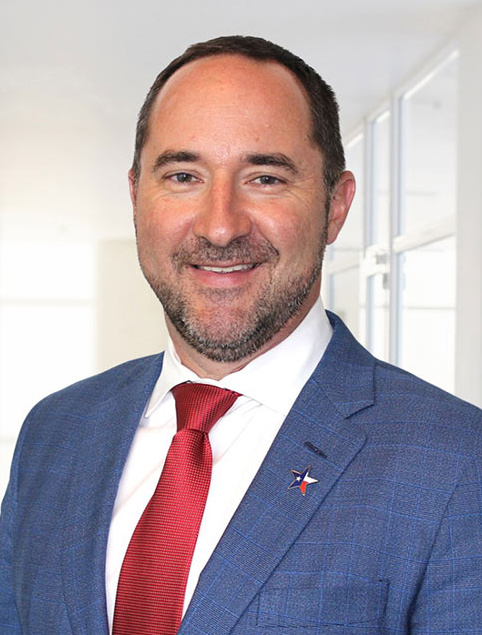
In 2021, for less than the cost of one analyst, a fully digitized integrated system can be implemented that captures revenue, costs, assets, safety and most every data point required to run today’s OFS company, according to Cavitt. (Source: Shutterstock.com)
Absence of growth capital, razor-thin margins, personnel shortage, vanishing working capital, increased scrutiny on ESG, skyrocketing costs, flat pricing and competition that somehow continues to survive…this is just a day in the life of the oilfield services (OFS) leader.
Most oilfield service company executives find themselves flying into the storm of today’s new and overwhelmingly challenging market with the tools of old and permanently deferred hope. Managers are under significant pressure to improve margins after spending the last year or so at zero or negative EBITDA. As pricing remains stubbornly close to breakeven, there is little room for error. While activity improves, it does so as all costs are increasing and a labor market that is tightening. Knowing your daily P&L and liquidity projections are more critical than ever; yet due to downsized back-office staff, there is no one to turn to. In the past, admins and analysts were hired without a thought of expense to put spreadsheets together all night so executives could make better-informed decisions. This approach is now and forever forbidden due to cost. Operations turns to accounting to give answers on unit economics from the ERP and again, this method fails because the data is consolidated and historical. In this article, the new approach to data-driven decisions will be discussed in a few easy-to-follow suggestions from proven OFS managers.
1. Problem: Revenue! Ops managers always tend to focus on this as though it is all that matters and it’s true that revenue covers a multitude of sins. However, capturing revenue in a way that lets you know where, when, and what is important. This paves a way to identify trends, customer/work mix, sustainability, and equipment needs though unfortunately this visibility is lightyears away for most companies. Just looking at a daily revenue number is simply not enough anymore.
Solution: Digital Ticketing! Many companies have historically used excel to produce field tickets and while they may have a good idea of their daily revenue, they miss the key data points that are driving their business and are blind. Digital ticketing is widely available in cloud-based systems that digitize the most important part of the workflow which is the job itself. Typically, this is done outside of the ERP due to the nuances and expense of customizing ERP. Digital Tools of 2021, like RigER allow OFS companies to abandon excel through use of a digital field ticketing platform that makes the data extractable in real time and in granularity to give transparency to the status of the lifeblood of the company. This improves regular reporting and of course the DSO of the company by days or weeks while eliminating need for increased staff as activity increases.
2. Problem: I don’t know my costs until it’s too late! Of all the time and energy implementing systems and processes in today’s OFS companies, very little is spent on capturing enough data to know costs until it’s too late in the month to correct. As margins have eroded and costs increase, survival now depends on correcting this issue.
Solution: Digitization down to the job! Now that the job itself is digitized as described above, there remains a central hub to track any data related to that job which naturally brings you to costs. There is no way of shortcutting this problem. It requires digitization of the purchasing and payroll while integrating that with the digital job itself. There are systems built to create a central hub for digitization and that is the field ticket. Once you have that, any and everything can funnel to that job digitally without adding a dozen admin staff. The right system can give accurate and real-time job costing. This concept is worth 2%-3% of gross margin alone for most companies.
3. Problem: Too many variables! The human mind can only contemplate so many variables and between employees, assets, HSE, fleet, AR, AP, Sales, and every other department, the number of data points in a single day are simply too many to keep in your head. No one person can assimilate all of this. Therefore, it is important to decide what about your business is critical to make decisions by on a daily, weekly, monthly, quarterly basis and limit the information to what is needed, so managers have the mental bandwidth to process.
Solution: Dashboard! A little money spent on digitizing 3-5 Daily KPIs, 5-8 Weekly, and 8-10 Monthly KPI’s will amount to increased visibility of your business as well as increased mental bandwidth for time with your team, planning, and family. Multiple systems provide this reporting, and many are able to customize to give the KPI’s you need in real time at the click of a button and again most systems function well without adding headcount. There are several dashboards in the market which can amalgamate data from multiple systems, ERP, spreadsheets, etc. Many leaders find that having organized, accessible, and concise data to review in regular intervals gives great comfort and stress relief even if the news is bad.
Providing the information stated above would typically take 2% or more of the employee base of a traditional oilfield service company to accomplish. In 2021, for less than the cost of one analyst, a fully digitized integrated system can be implemented that captures revenue, costs, assets, safety and most every data point required to run today’s OFS company. The bold souls that choose this path will see their strategic focus revolutionize, their performance improve, and their culture transformed through digital transparency. Moreover, without fail, margins, returns, liquidity, and even revenues increase. These companies have happier, more engaged management teams and more motivated employees/stakeholders compared to their competition.
 John Mark Cavitt serves as CEO of RigER, a Houston-based service company providing digital oilfield operation solutions for energy service and equipment rentals.
John Mark Cavitt serves as CEO of RigER, a Houston-based service company providing digital oilfield operation solutions for energy service and equipment rentals.
An experienced chief executive with a demonstrated history in greenfield startups, operations management, capital discipline, strategic M&A and high-performance cultures, Cavitt has decades of entrepreneurial experience in a variety of service industries with a track record of unparalleled success in building companies that impact their surrounding communities. His drive is rooted in the ability to provide life-giving, empowering jobs for people. A sought-after speaker, experienced negotiator and discerning investor, he also continuously works to pave new ways in the energy sector through engineered innovation and technologically driven solutions.
Recommended Reading
Texas LNG Export Plant Signs Additional Offtake Deal With EQT
2024-04-23 - Glenfarne Group LLC's proposed Texas LNG export plant in Brownsville has signed an additional tolling agreement with EQT Corp. to provide natural gas liquefaction services of an additional 1.5 mtpa over 20 years.
US Refiners to Face Tighter Heavy Spreads this Summer TPH
2024-04-22 - Tudor, Pickering, Holt and Co. (TPH) expects fairly tight heavy crude discounts in the U.S. this summer and beyond owing to lower imports of Canadian, Mexican and Venezuelan crudes.
What's Affecting Oil Prices This Week? (April 22, 2024)
2024-04-22 - Stratas Advisors predict that despite geopolitical tensions, the oil supply will not be disrupted, even with the U.S. House of Representatives inserting sanctions on Iran’s oil exports.
Association: Monthly Texas Upstream Jobs Show Most Growth in Decade
2024-04-22 - Since the COVID-19 pandemic, the oil and gas industry has added 39,500 upstream jobs in Texas, with take home pay averaging $124,000 in 2023.
What's Affecting Oil Prices This Week? (Feb. 5, 2024)
2024-02-05 - Stratas Advisors says the U.S.’ response (so far) to the recent attack on U.S. troops has been measured without direct confrontation of Iran, which reduces the possibility of oil flows being disrupted.




